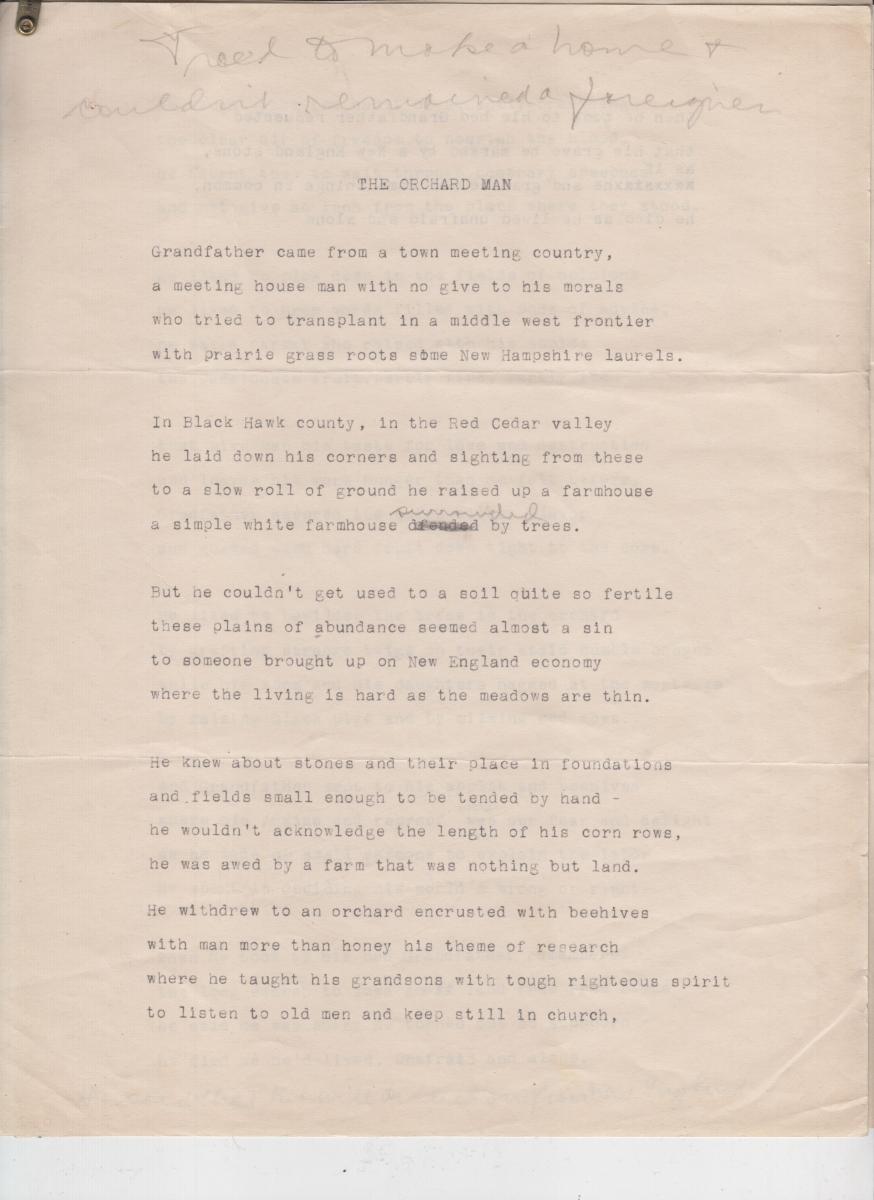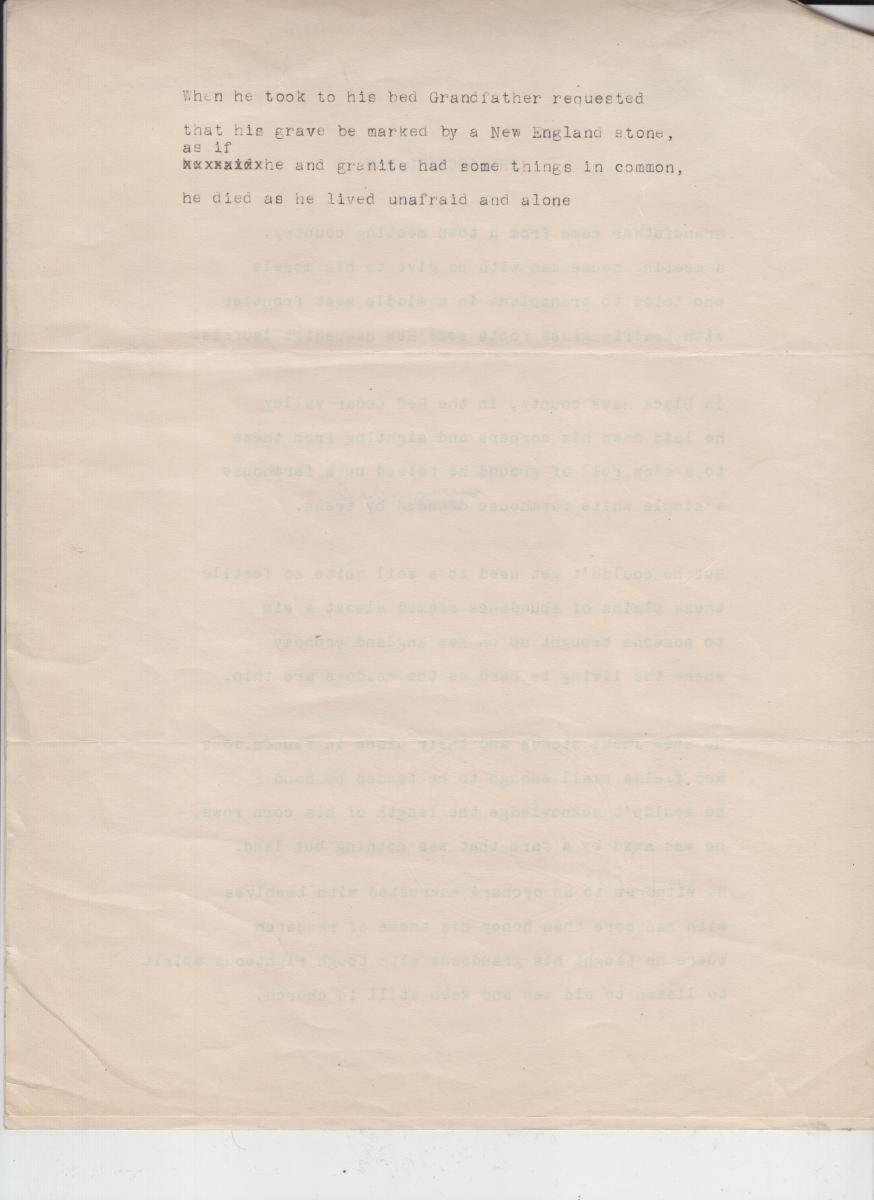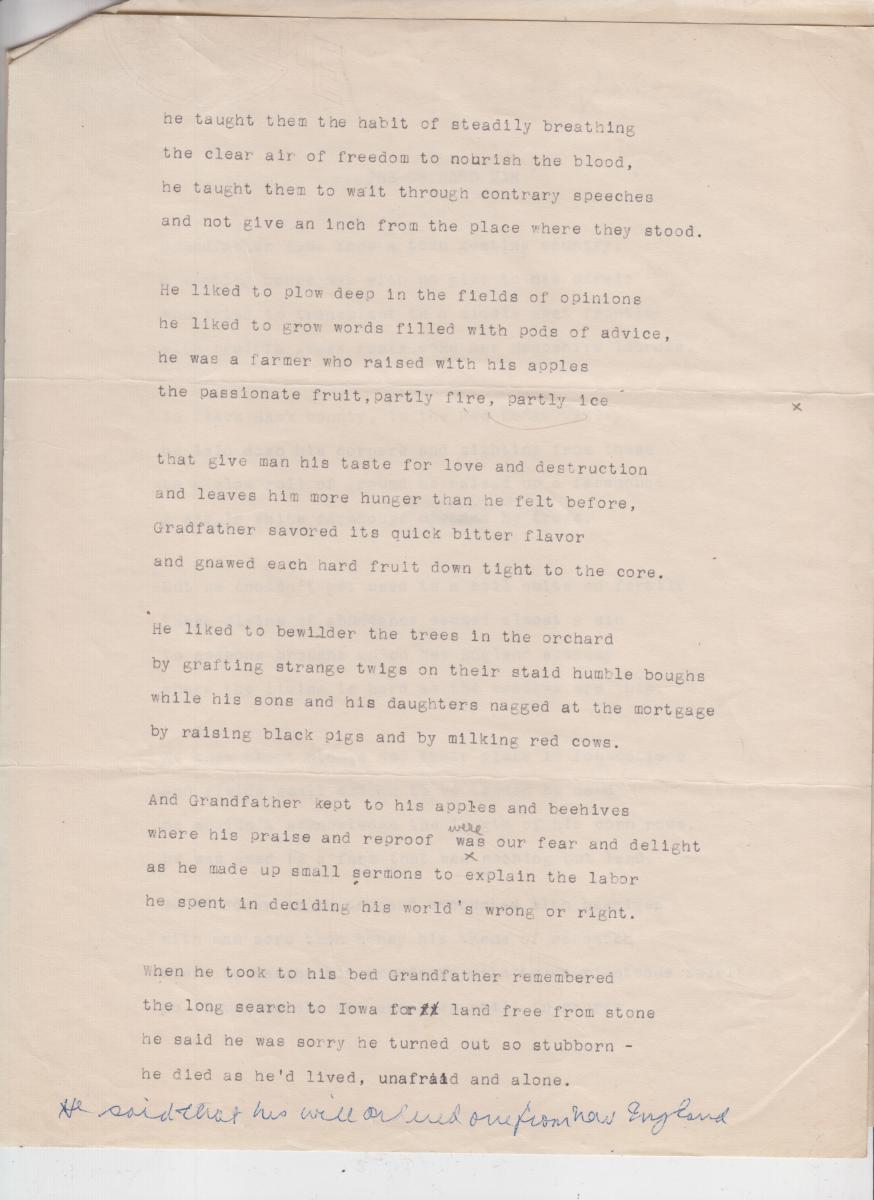The Orchard Man
Grandfather came from a town meeting country,
a meeting house man with no give to his morals,
who built his own home in the middle west frontier
homesick for New Hampshire, its mountains and laurels.
In Black Hawk county in the Red Cedar valley
he laid down his corners and sighting from these
to a slow roll of ground he raised up a farmhouse,
a simple white farmhouse surrounded by trees.
But he never understood soil quite so fertile,
these plains of abundance seemed almost a sin
to someone brought up on New England economy
where the spirit was strong but the living was thin.
He knew about stones and their place in foundations
and fields small enough to be planted by hand.
He wouldn’t acknowledge the length of his corn rows,
he was awed by a farm that was nothing but land.
He withdrew to an orchard encrusted with beehives,
with man more than honey his theme of research,
where he taught his grandsons with rough righteous spirit
the difference in duty to state and to church.
He taught them the habit of steadily breathing
the clear air of freedom to nourish the blood,
he taught them to listen to contrary speeches
and not give an inch from the place where they stood.
His principles never spared anyone judgment
though his eyes were less stern than the words that he spoke
when he was correcting a neighbor’s opinions—
he was mostly disliked by respectable folk.
He never had any expense with decision
his will kept paid up his conscience account
no debt ever languished for his want of action
no matter how large or how small the amount.
The man who came begging got more than he asked for
while Grandfather helped him chop wood for his food
he examined his faith and his concept of duty
the tramp usually left us as fast as he could.
He liked to bewilder the trees in the orchard
by grafting strange twigs on their staid humble boughs,
while his sons and his daughters nagged at the mortgage
by raising black pigs and by milking red cows.
Grandfather kept to his apples and beehives
where his praise and reproof were our fear and delight,
he made up small sermons to accent the labor
he spent in deciding his world’s wrong and right.
When he took to his bed Grandfather requested
that his grave be marked by a New England stone
as if he and granite had habits in common—
he died as he’d lived, unafraid and alone.
Publication Details
Man and His Field. Denver: Allan Swallow. 1951. 25.
Themes and Motifs
Manuscript



Permission to reproduce work from the James Hearst Papers has been granted by the Special Collections Department of the University of Iowa Libraries.

Notes and Commentary
Detailed autobiographical sketch of grandfather.